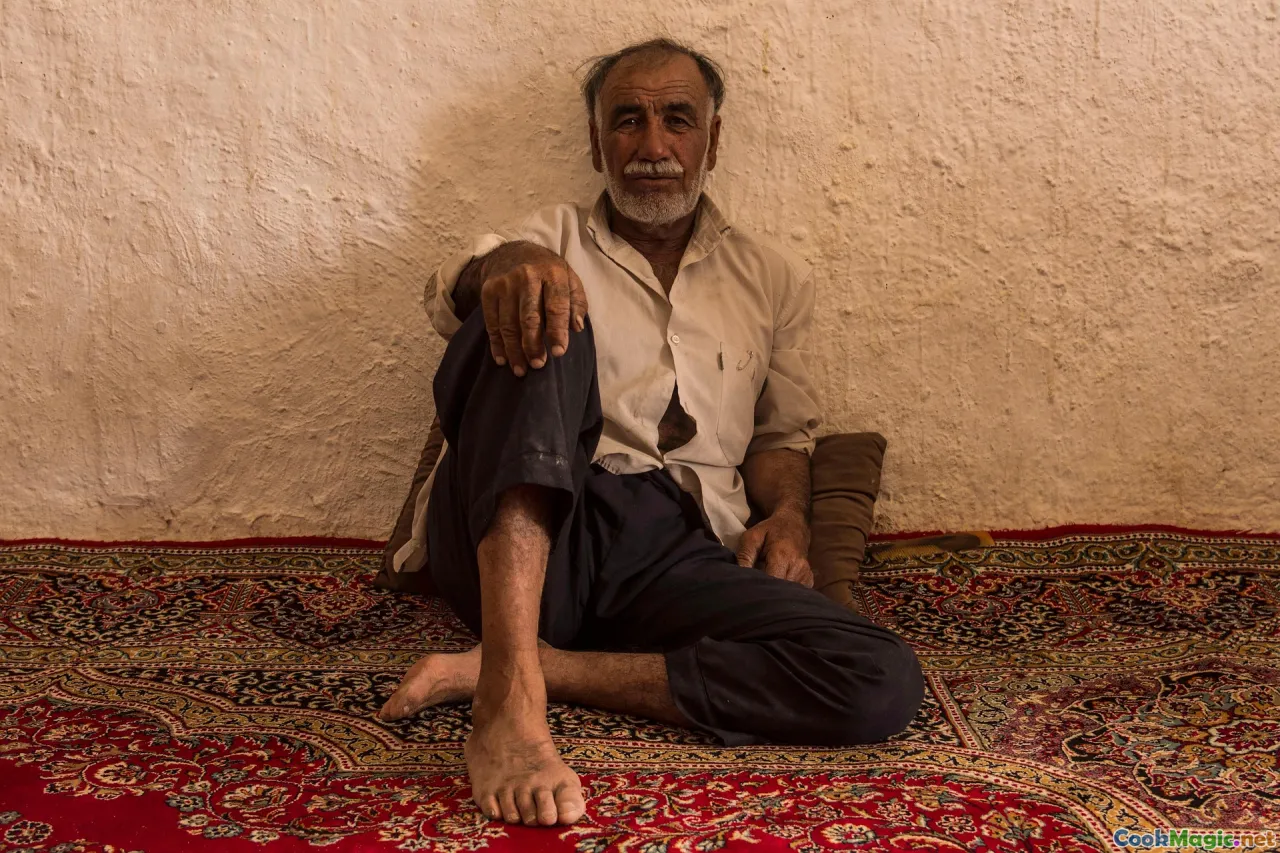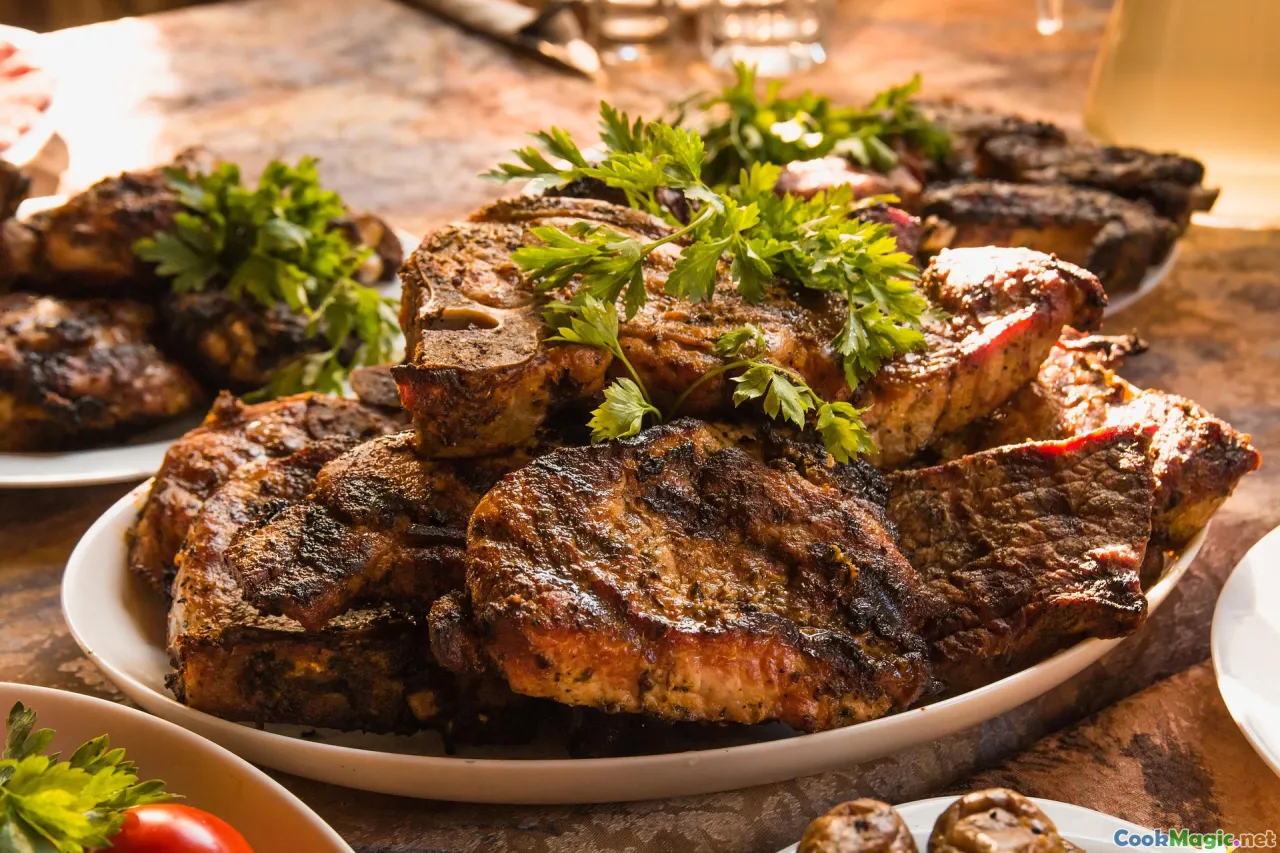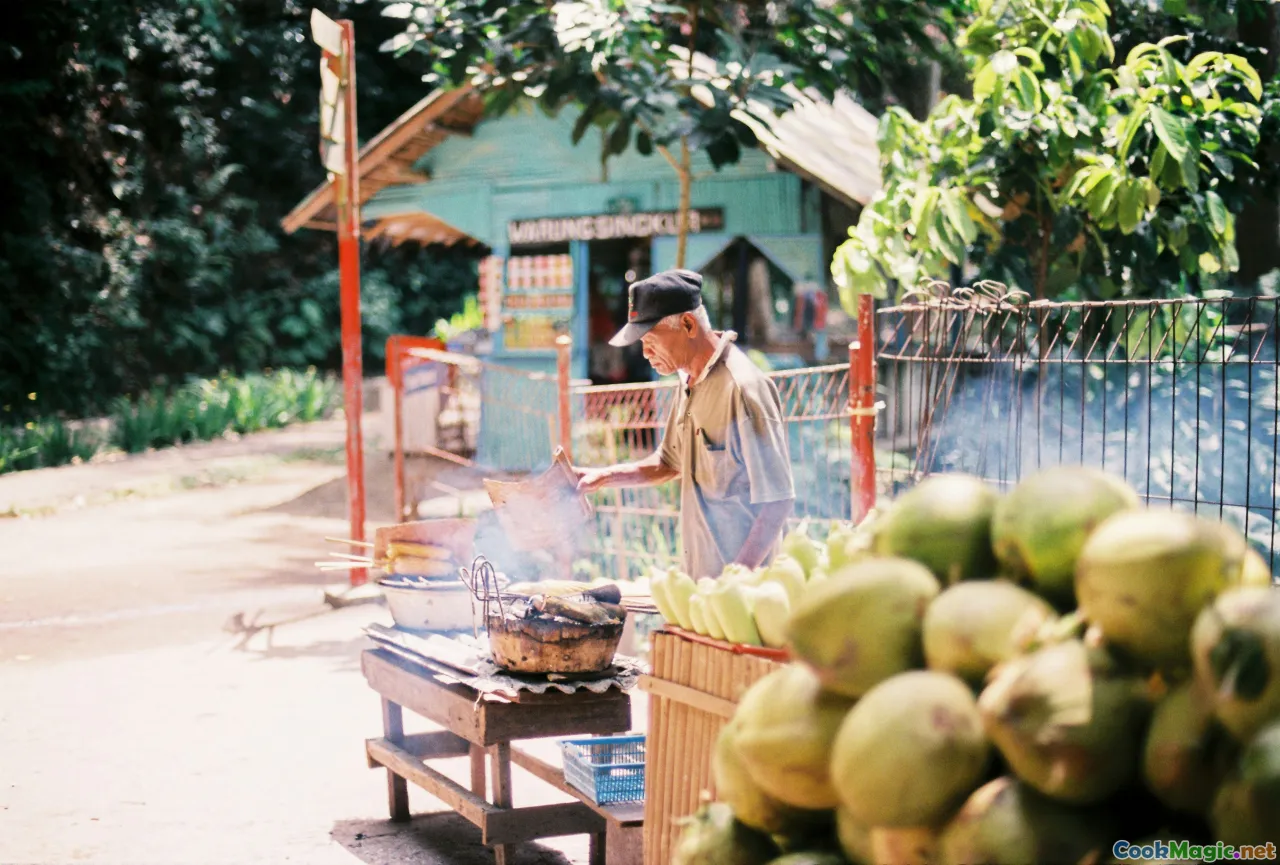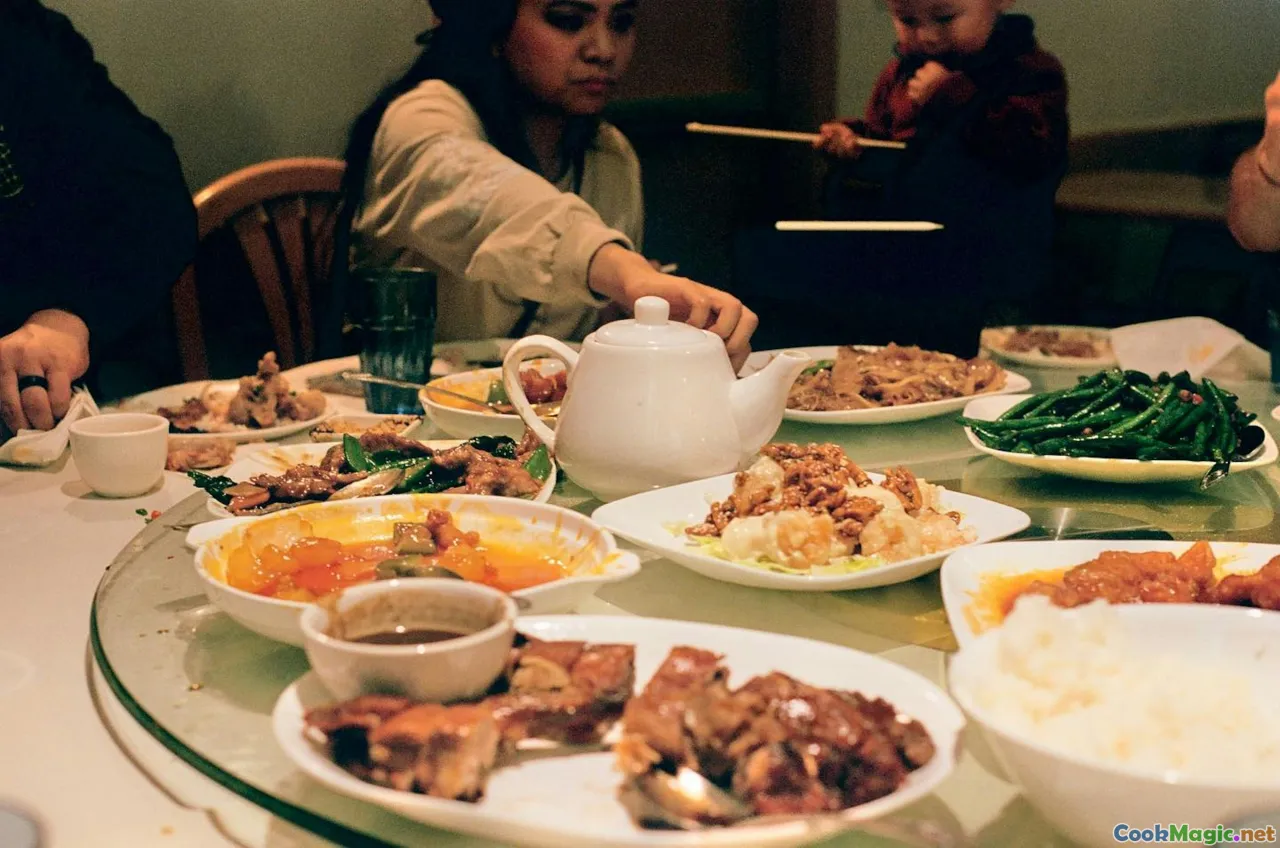Middle Eastern Family Feasts
11 min read Explore vibrant dishes and cultural traditions that make Middle Eastern family feasts an unforgettable culinary experience. August 25, 2025 09:05
Middle Eastern Family Feasts: A Celebration of Heritage and Flavor
Across the centuries, the Middle East has been a crossroads of civilization, culture, and culinary tradition. At their core, Middle Eastern family feasts are more than just a gathering to eat; they are a vivid tapestry woven with stories, history, and the deep bonds of kinship. When a family comes together over a lavish spread, they invoke centuries of tradition—sharing dishes that speak of land and spirit, of memory and hope.
Imagine the aroma of warm spices wafting through a bustling home in Cairo, the shimmering golden glow of kebabs roasting over charcoal in Beirut, or the vibrant burst of fresh herbs during a Ramadan Iftar in Amman. Each feast is an immersive experience—an evocative symphony of textures, tastes, and sights that leaves an indelible mark on the senses.
So, what makes Middle Eastern family feasts so irresistibly alluring? Let’s journey through the traditions, dishes, and personal stories behind these culinary celebrations.
The Cultural Significance of Feasts in Middle Eastern Traditions

In Middle Eastern culture, food transcends sustenance—it's an expression of love, respect, and community. Family feasts symbolize unity, the reaffirmation of bonds, and the honoring of guests. Whether marking religious holidays like Eid or Ramadan, celebrating a wedding, or simply gathering after a week of work, these meals are sacred moments.
Historical roots trace back centuries, to times when hospitality was a social virtue and sharing a meal was a sign of prosperity and goodwill. Ottoman caravans and Bedouin tribes exchanging dishes across deserts and cities have created a rich culinary lore, each dish carrying stories from ancient trade routes and nomadic lifes.
For families, these gatherings are less about the food itself and more about the emotions—the nostalgia of childhood, the pride of culinary heritage passed down through generations, and the joy of sharing abundance.
The Core Elements: Staples & Flavors That Define the Feast

Middle Eastern feasts are characterized by their diverse array of dishes that balance richness with freshness. The foundation often revolves around staple ingredients: fragrant rice, crusty flatbreads, tender meats, vibrant vegetables, and an abundance of herbs and spices.
Mezze Platters: A Symphony of Small Bites
Begin any feast with a mezze—a medley of small, flavorful dishes that excite the palate. Think creamy hummus topped with paprika, smoky baba ganoush shimmering with olive oil, tangy labneh drizzled with za'atar, and crunchy falafel. These bites are more than appetizers; they are social catalysts, fostering sharing and conversation.
Aromatic Rice and Pilafs
Rice is often the centerpiece, infused with saffron, cardamom, cinnamon, and sometimes herbs like parsley or dill. Persian zereshk polo (barberry rice) or Lebanese mujaddara (lentil and rice pilaf with caramelized onions) serve as hearty accompaniments.
Grilled Meats and Kebabs
No feast is complete without succulent kebabs—lamb, beef, or chicken—that are marinated overnight in a blend of yogurt, garlic, sumac, and lemon juice, then grilled to perfection. The smoky aroma and the juicy tenderness create an experience that is both primal and sophisticated.
Fresh Vegetables and Salads
Bright, crispy salads like fattoush—a pomegranate, radish, and toasted pita salad—or tabbouleh, a parsley and bulgur salad, bring freshness and balance to the richness of meats and grains.
The Art of Cooking: From Tradition to Table

Traditional Middle Eastern cooking methods imbue dishes with unique textures and flavors. The use of clay tagines for slow-cooked stews, skewers over charcoal, and open-fire cooking at street stalls bring an authentic depth.
For many families, these recipes are treasured heirlooms. I recall visiting a small Damascus kitchen where grandmother prepared slow-cooked lamb shoulder with sumac and onions, simmered for hours until the meat was meltingly tender, its aroma filling every corner.
Home cooks blend honesty and intuition—tasting, adjusting spices, and adding personal touches, which transform recipes into culinary heirlooms.
Personal Stories: Family Traditions and Signature Dishes

Every family has its signature dish—a secret that ties them to their roots. In my own experience, I have vivid memories of my aunt’s Kibbeh Nayyeh—spiced raw lamb mixed with bulgur, served with a drizzle of olive oil and a squeeze of lemon—an ode to Lebanese culinary elegance.
In Palestinian families, a lavish Musakhan (roasted chicken with sumac, onions, and pine nuts atop flatbread) often graces the table during harvest festivals. The act of preparing these dishes together is a ritual—instilling pride, passing on stories, and creating bonds.
Traveling through the Levant, I met a Syrian family that celebrated every arrival with a large pot of Fattoush and homemade kebabs, their laughter echoing amongst the aroma of grilling spices. Their stories revealed that these gatherings are more than food—they are narratives of survival, resilience, and joy.
The Role of Hospitality and Gift-Giving

Hospitality in Middle Eastern culture is a fundamental value. The act of inviting someone to your table is a gesture of friendship and respect. During feasts, the host often anticipates needs, offering freshly brewed Turkish coffee, or a glass of mint tea infused with sugar.
A special aspect is the value placed on generosity—overflowing tables and seconds are a norm. Wrapped pastries like baklava or ma'amoul (date-filled cookies) often accompany these occasions, sometimes gifted to neighbors or community members, reinforcing bonds beyond the family circle.
Modern Interpretations and Fusion

While tradition dominates, contemporary chefs are reimagining Middle Eastern family feasts, blending age-old techniques with modern culinary trends. Chefs like Einat Admony and Gregory Mutti craft dishes that pay homage to heritage while embracing innovative presentation.
Think deconstructed falafel on a beds of beet hummus, or saffron-infused risottos with crunchy za'atar breadcrumbs. These creations are not only delicious but serve as bridges connecting generations.
At the same time, casual street food vendors in Beirut and Tel Aviv showcase Middle Eastern flavors in fast, accessible formats—offering an informal yet equally authentic experience.
Tips for Hosting Your Own Middle Eastern Family Feast
- Start Small but Thoughtfully: Begin with a few signature dishes—hummus, grape leaves, grilled kebabs—and build from there.
- Use Fresh, Quality Ingredients: Herbs, spices, and olive oil are the soul of Middle Eastern cooking. Invest in good quality.
- Create a Festive Atmosphere: Bright textiles, lanterns, and traditional music enhance the experience.
- Involve Family or Friends: Sharing tasks, cooking together, strengthens bonds.
- Focus on Presentation: Use beautiful platters, sprinkle fresh herbs, and serve with enthusiasm.
- Tell the Stories: Share the history of dishes or family anecdotes to deepen the connection.
A Flavorful Journey into the Heart of Middle Eastern Celebrations
To partake in a Middle Eastern family feast is to immerse oneself in a culture rich with hospitality, history, and passion for life. Each dish, from smoky kebabs to fragrant rice and creamy dips, carries the essence of centuries-old traditions and personal memories. The act of gathering around a shared table becomes a living testament to resilience, generosity, and love.
Whether you re-create these feasts in your home or travel to the bustling markets of Istanbul or the warm homes of Jerusalem, remember that you are participating in a timeless tradition. A tradition where every bite speaks of homeland, soul, and the enduring spirit of family.
Slip into the joy of breaking bread with loved ones—embrace the aromas, stories, and connections that make Middle Eastern family feasts truly unforgettable.









